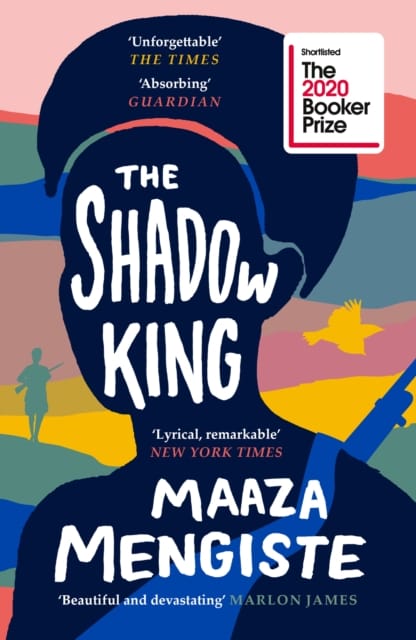
“The Shadow King” by Maaza Mengiste
This is my choice as my Book of the Year for 2020, which I thoroughly enjoyed immersing myself into during the closing weeks of last year. It offers the reader a very interesting insight into the Italian invasion of Ethiopia in 1935, and reminds us of these events, and the hard hand of Mussolini’s army in suppressing the local tribes and population. A somewhat forgotten episode in the history of the last century that has been buried by events of World War 2.
This novel, and it is definitely a work of fiction constructed on a giant web of facts, displays the author’s years of research. It reads historically as factual being enhanced by a wide mixture of characters, including Mengiste’s interpretation of Haile Selassie. When published it received much praise and was eventually nominated onto the shortlist of The Booker prize, and I could see why it should be so rewarded.
Some people immediately avoid anything accoladed with the Booker name; but do not be. It is a most enjoyable read. One quote on the cover by Salman Rushdie states “It’s also compulsively readable. I devoured it in two days”. In my opinion it would have been a travesty to rush this book even if you could just sit and indulge yourself.
The main characters are Hirut, her master Kidane, a regional leader and his wife Aster. We meet them first prior to the Italian invasion learning about their earlier lives, but it is after the war starts that the events bring this novel alive, following Haile Selassie’s flight abroad, as the superiority of the invading forces quells local opposition. Hirut suggests that a lowly peasant, who bears a striking resemblance to their leader, should act as his double, and as a morale booster. While Aster and other women start a women’s army with Hirut becoming a guard to the stand-in Emperor.
We follow their lives and those of other Ethiopians, while also witnessing the conflict from the Italian side mainly through their Colonel Carlo Fucelli, and a photographer within his staff, one Ettore Navarra. The Colonel is a sadistic military man, insisting on his campaign being recorded on film. Navarra has issues, his parents at home are being persecuted for their Jewish background and even that far from home, he is pursued by his origins.
On each side of the conflict we follow the lives of these characters and beside this, other individuals of various nationalities fighting or supporting both sides. The author describes her homeland lovingly, vividly letting her reader feel the landscape in which the novel is set. There is much to be read within these pages as the history behind these events is recounted and the lives of all these personalities evolve. The hardships and depravities of war mixed with their day to day struggles and some good times make for a very complete and enjoyable novel, one that reminded me of some forgotten history which I must have learned decades ago.
